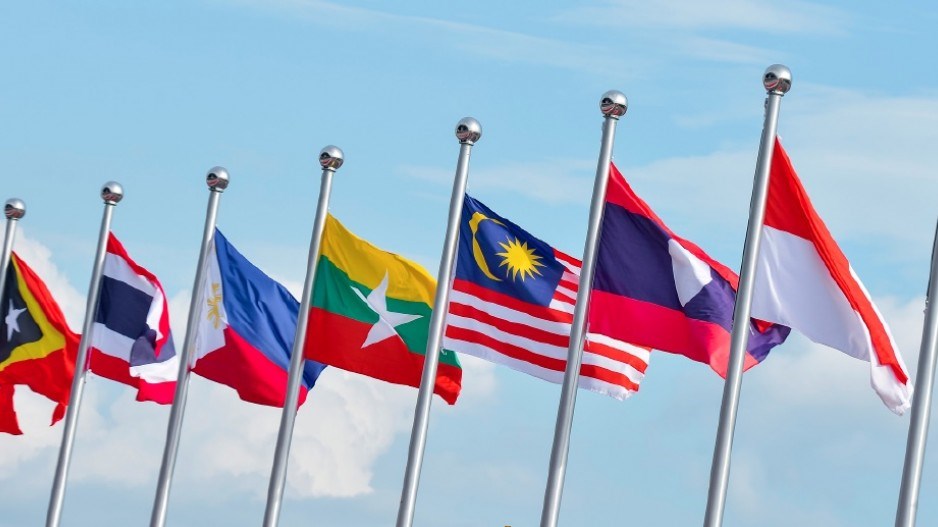Former provincial trade representatives say the John Horgan government has left behind a trail of unpaid bills and legal obligations in closing offices this year in Asia and that significant staffing shortages have “decimated” trade and investment services in the region.
They say the province has left them personally responsible for hundreds of thousands of dollars in wind-down costs and walked away from local laws and procedures in Asia about shuttering offices that may take years to address. Moreover, they argue the sloppiness of a transition plan to move offices into Canadian embassies has left large gaps in vital Asian markets for provincial trade and investment.
They say Michelle Mungall, the province’s jobs, economic development and competitiveness minister, is inaccurate in stating there has been a “smooth transition” of B.C. services to the embassies.
Mungall told a legislative committee examining provincial spending estimates July 23 that “all the services were in place” and that trade and investment offices “have completed their transition.” Far from the province having financial obligations, she said, “there are obligations owed the province.”
Her remarks prompted the former representatives to break their silence and dispute her assertions. They spoke on condition of anonymity. While they accept that the province has the prerogative to close the offices, they say that the handling of the wind-down has been “dishonourable” and “cavalier.”
They say only about one-fifth of the positions cut have since been filled. Headcount has gone from 19 to five in China, from six to three in Japan, from 10 to zero in the Association of Southeast Asian Nations markets of Indonesia, the Philippines, Malaysia and Singapore, from six to zero in South Korea, and with no one in place any longer in the important markets of India and Hong Kong. Offices have been moved, but services have been “decimated.”
The former representatives say the province won’t even answer their email pleas to deal with mounting bills for which they are being held personally responsible. Expenses that had been routinely accepted suddenly weren’t once the closures were announced.
Mungall, appointed to the role earlier this year, declined an interview. Her office said she did not have time last week to speak during her legislative duties. Instead, it provided an emailed statement and did not engage with any questions about the decision or its aftermath.
The statement did say, though, that the province has trade offices in China, Japan, South Korea, Singapore, Philippines, Indonesia and India – matters not entirely reflected on the province’s website. The official for Korea is based in Victoria, for instance.
Last December 30, with little attention during the Christmas-New Year’s period, then-minister Bruce Ralston announced the government was closing offices in Beijing, Shanghai, Guangzhou, Hong Kong, Tokyo, Seoul, Manila, Jakarta, Singapore, New Delhi, Mumbai, Chandigarh and Hyderabad. The province said the contracted service roles would now be embedded in Canadian embassies in staff positions.
Ralston, his deputy and his assistant deputy minister have since moved to new portfolios.
“By moving from a contractor model to a staff model and co-locating in Government of Canada embassies and consulates, we have greater access to the knowledge, talent and resources of the Trade Commissioner Service and Invest in Canada teams,” said the provided statement, in part.
The effectiveness of the offices has never been publicly questioned. Indeed, this government has touted their presence and the growth of Asian trade and investment in our economy, noting in its 2018 study an exceptional return on the investment in the offices: $450 million in export deals, nearly $1.4 billion in investment and more than 4,600 jobs. One year ago, in discussing the offices as part of the examination of budget estimates, then-minister Ralston noted that the 216 export deals facilitated in the previous year had exceeded the target of 150.
The government has refused to release a subsequent consultant’s report, despite several requests under the Freedom of Information Act, but those who have seen it say it did not recommend closure. The report drew upon trade staff for information shortly before their employment was discontinued.
Other provinces – Ontario, Quebec and Alberta – have shifted some trade and investment services into Canadian embassies over the years. B.C., however, has a more profound Asian trading relationship owing to geography and demography. Nearly 40% of the province’s exports are with China, Japan and other Asian countries, and the creation of its offices and contracted services with about 50 people aimed to reflect those features. They say the federal embassies were caught by surprise about the announcement and were not consulted ahead of time, despite the minister’s assertions.
The ex-representatives believe the office closures and move to the embassies are designed to disguise the reduction in service levels in Asia. •




